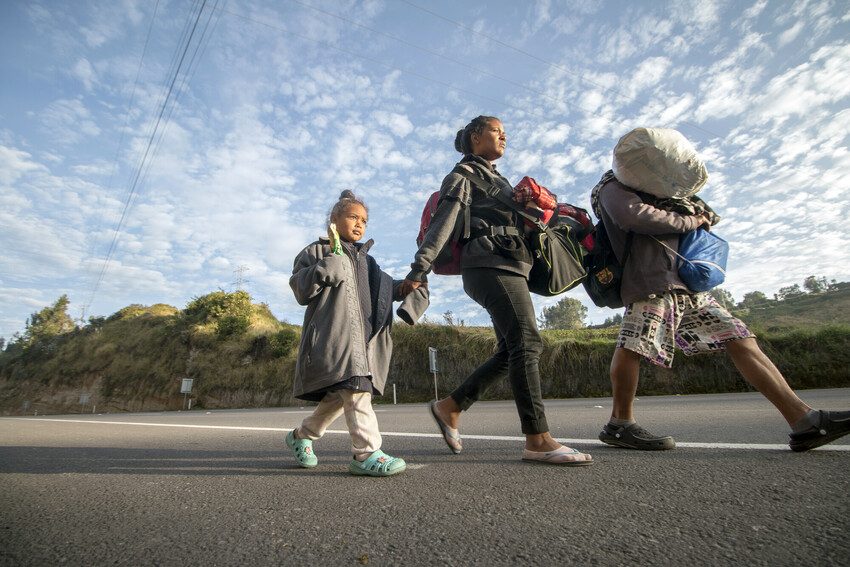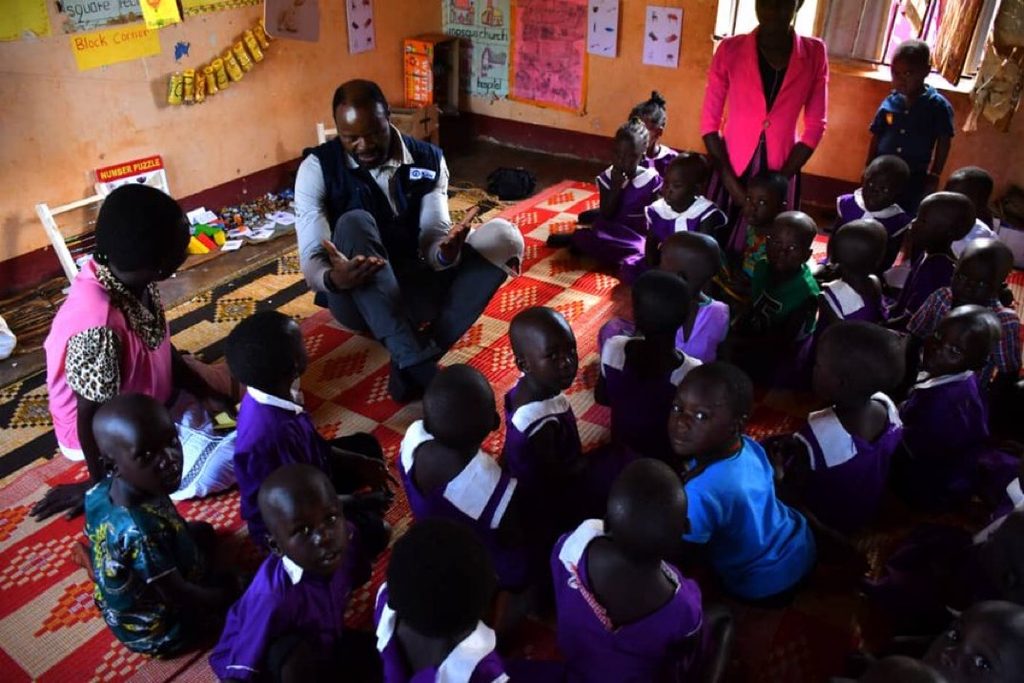The world must wake up to hidden refugee crises
19 June 2023For World Refugee Day, Plan International CEO Stephen Omollo and Forced Displacement Advisor Enzo Mauro Tabet Cruz discuss the hidden refugee and displacement crises that are affecting girls' lives – and what the international community must do, urgently, to support them.

Stephen: Enzo, thank you very much for taking time to share your expertise on this critical issue.
More than ever, human mobility is in the spotlight. We have seen with the Ukraine crisis that the international community has the ability to provide vital support. Many countries have opened their doors, allowing refugees to access services such as health, education and welfare support; and financial support has been provided to countries neighbouring Ukraine to help share this responsibility.
Enzo, I know that far away from the spotlight, many other countries continue to host thousands of refugees without proper support. Could you give us some insights into these more hidden refugee crises?
Enzo: Thank you for this question which is so important when we think about the 103 million refugees around the world.
The response for the Venezuelan crisis, for instance, is still only 6% funded, despite more than 7 million people being displaced to countries in the region. Of these, 2.5 million are in Colombia, where there is chronic need, despite the wonderful solidarity and support of host communities and the government.
I was recently in Colombia and have witnessed first-hand Plan International’s work for displaced populations by way of legal assistance, mobile protective spaces for children and access to quality education that can empower girls. However, there are still major gaps when it comes to funding from the international community to support transformation at scale in the lives of displaced people and host communities.
There are still major gaps when it comes to funding from the international community to support transformation at scale in the lives of displaced people and host communities.
Enzo Mauro Tabet Cruz, Forced Displacement Advisor.
We need to keep in mind, this is one of the many neglected displacement crises which Plan International is also working on across the world. Just as in Colombia, we work with host communities, refugees, and authorities to ensure children and young people can live their lives free of violence, and access quality education so they can grow up to fulfil their potential.
Stephen, I know you have been striving to emphasise the different impacts of these crises, especially those faced by girls.
Could you tell us why you are taking this focus and why it is so important that we prioritise this?
Stephen: This question gets to the heart of our mission at Plan International. I have spoken to girls in crisis situations, and they have explained how difficult it is for them to access quality education. They are clear that the reason they are excluded is that often girls are seen as less valuable than boys, especially when crisis hits. I have been clear that it is our role to challenge these attitudes and I am pleased that we have been able to offer solutions. For example, I visited a speed education project in Uganda where girls are being supported in catching up with missed years of learning.

We know that displaced girls are at higher risk of sexual and gender-based violence, which can make it difficult for them to access essential services due to stigma or unjustified blame for the violence they have experienced. We are particularly concerned with the high rates of child, early and forced marriage among refugee girls often due to the desperation of their families. These girls often drop out of school, perpetuating a cycle of poverty and limiting their prospects to make their own life choices. It is critical that we continue our programs on reducing these harmful practices.
I’m happy that we can make an impact in the lives of some girls, but there is still massive underfunding of these sorts of interventions to implement them at scale.
Enzo, as someone who works to support the UN and governments to improve their policies towards refugees, what must the international community do to help?
Enzo: The international community has a key role in ensuring refugee children, particularly girls and young women, can access durable solutions for their displacement. In 2018, more than 180 governments agreed on ambitious commitments through the Global Compact on Refugees to ensure all refugees, particularly refugee children and their families can have a stable and sustainable future.
Among those commitments, accessing national and local services stands out as a way to ensure refugee children and those in host communities are equipped with life skills, can become self-sufficient, and are not subjected to discrimination, violence, or exploitation.
However, forcibly displaced children, particularly girls and young women, continue to face practical and legal challenges in accessing a variety of services. Even when refugee children and their families have the right to access national services, practical barriers, such as the lack of political will, the capacity of service providers, and underfunding, present major challenges.
Stephen, could you share why you have asked us all to prioritise the Global Refugee Forum (GRF) in December as a critical moment in addressing the global refugee crisis.
What are your hopes for this event?
Stephen: The GRF is an important opportunity to increase support for refugee girls and young women. At the 2019 Global Refugee Forum, more than 700 law and policy pledges supported refugee inclusion and host communities. However, less than 30% of those pledges mentioned specific measures on how they would tackle discrimination based on age and gender, which means that girls, as the most vulnerable, may not benefit.
Therefore, this year we need to see substantial pledges that focus on the most vulnerable. I would like to see concrete commitments to support children, particularly girls and young women, promote gender equality, end all forms of violence, and ensure the provision of quality, gender-transformative education.
I would like to see concrete commitments to support children, particularly girls and young women, promote gender equality, end all forms of violence, and ensure the provision of quality, gender-transformative education.
Stephen Omollo, CEO, Plan International.
Enzo, what impact could this have?
Enzo: This could have a major impact in securing access of all refugee children and youth to comprehensive services, and that girls and young women’s needs are given priority due to persistent inequalities.
Stephen: And how might this look in practice?
Enzo: For these commitments to work we need to ensure a collective pact of equitable responsibility-sharing for hosting refugees, both in domestic policies and foreign aid. This means increasing national budgets to extend services to refugees in all their diversity and their financial contribution to refugee responses with long-term flexible financing.
Pledges will only be impactful and meaningful if we put children at the centre of planning and implementing them. We repeatedly hear from refugee girls and young women that they do not feel heard in decisions affecting their lives. They are the experts in their own lives and must be consulted as well as becoming active shapers of the solutions that support their needs.
Thank you, Stephen, for taking the time out to discuss this key issue.
Stephen: Thank you also Enzo for all the work you are doing, and thank you also to our many wonderful staff all around the world working in humanitarian crises supporting the urgent needs of girls, boys, and young people.


